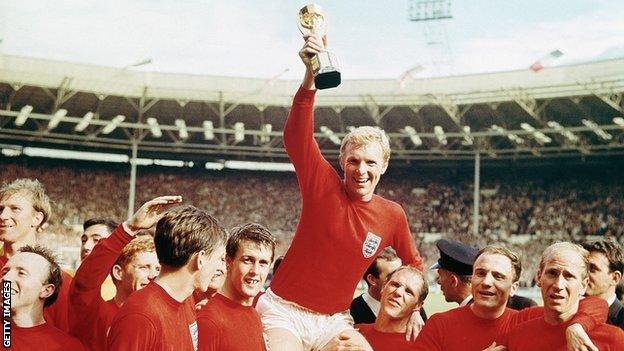
Professional Footballers' Association chief executive Gordon Taylor says his organisation has done "more than any other players' union, sporting union or trade union" on the issue of dementia in football.
His comments came after former England striker Chris Sutton told a parliamentary hearing on Tuesday that Taylor had "blood on his hands" for ignoring the issue.
Sutton, whose father Mike - also a former footballer - died last year after suffering with dementia, said the PFA and Football Association had "not done enough" and called for the government to take control.
"They have ignored, they have shunned, they have turned their back on what has been a massive issue," Sutton said.
"Hundreds of players have died - my father included. This is something we need to deal with, and deal with fast.
"It's really important the government take ownership of this, because the FA and the PFA haven't done anywhere near enough."
The session also heard criticisms of football's approach to brain injuries from campaigner Dawn Astle, whose father, former West Brom striker Jeff, was ruled to have died of a brain condition normally found in boxers.
In a statement to the BBC, Taylor, who is leaving his role at the end of the season, said support was offered to Sutton, and he was invited to the PFA to see their work on concussion and the "possible short- and long-term consequences of repetitive heading".
Taylor added: "The invitation was never taken up but nevertheless, I believe we have done more than any other players' union, sporting union or trade union on this issue when this is also a worldwide problem for governments and all populations, health services and neurologists alike."
FA fails to state injury research figure
The FA's failure to reveal during the hearing how much it spends on head-injury research left MPs "lost for words".
During a Department of Culture, Media and Sport session into head injuries in sport, the FA's chief medic Charlotte Cowie said she did not know the figure.
DCMS chair Julian Knight criticised Cowie's failure to provide a figure.
"I am absolutely appalled. I think you're too embarrassed," Knight said.
In responding to questions about the level of FA funding into head injury research, Cowie said there was "no funding limit but we want it to be the best in answer to our research questions".
Knight responded by saying: "I am staggered and I think this committee is staggered you have not come here today furnished with the information in terms of how much money you are spending on research in the last year."
Conservative MP Heather Wheeler told Cowie: "I don't know if I could do your job, love. I'm lost for words."
Later in the session, the chief executive of the Rugby Football Union Bill Sweeney said that his organisation spent £350,000 on injuries, of which head injuries were a large part, and committed "millions" of pounds to ongoing research.
By comparison, the FA commits a six-figure sum, but finances are understood to be only one element to getting other research off the ground. Cowie said involving the right participants was one issue it had to contend with.
In response to criticism from Astle and Sutton, Cowie stated that the FA had contributed to the 2019 Field (Football's Influence on Lifelong Health and Dementia Risk) study into neurodegenerative brain diseases.
That research found that former footballers were between two and five times more likely than the general population to die from degenerative brain diseases.
The governing body has proposed further research into the cause of increased risk of brain injuries in footballers and has ensured heading is reduced in training for under-18s. Players in those age ranges will head the ball a maximum 10 times in training during a single week.
Cowie told the committee: "They really are the most stringent heading guidelines that exist in a football governing body in the world at the moment and we are moving to heading guidelines in the professional game."
She said introducing similar measures into professional football would depend on the results of a survey looking at the effectiveness of the youth football guidelines. Further work, she said, will also involve using specialist mouthguards that can help to measure the force and impact of different types of headers.
Cowie was also questioned on why football had chosen permanent substitutions over temporary ones used in rugby, saying: "The overwhelming view of the doctors who worked in football was this would work best as our model."
But Sutton said the new substitutions laws "don't have the players' welfare and health at heart".
He also estimated he had headed the ball 72,000 times in his career and called for clubs to limit heading in training to a maximum of 20 per session and allow a minimum of 48 hours between those sessions.
Article From & Read More ( Concussion in sport: Gordon Taylor responds to Chris Sutton's dementia criticism - BBC Sport )https://ift.tt/31cQ1xu
Sport
Bagikan Berita Ini














0 Response to "Concussion in sport: Gordon Taylor responds to Chris Sutton's dementia criticism - BBC Sport"
Post a Comment